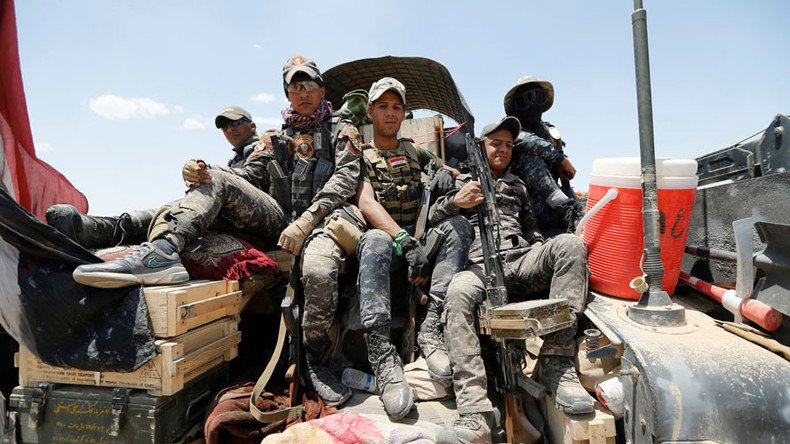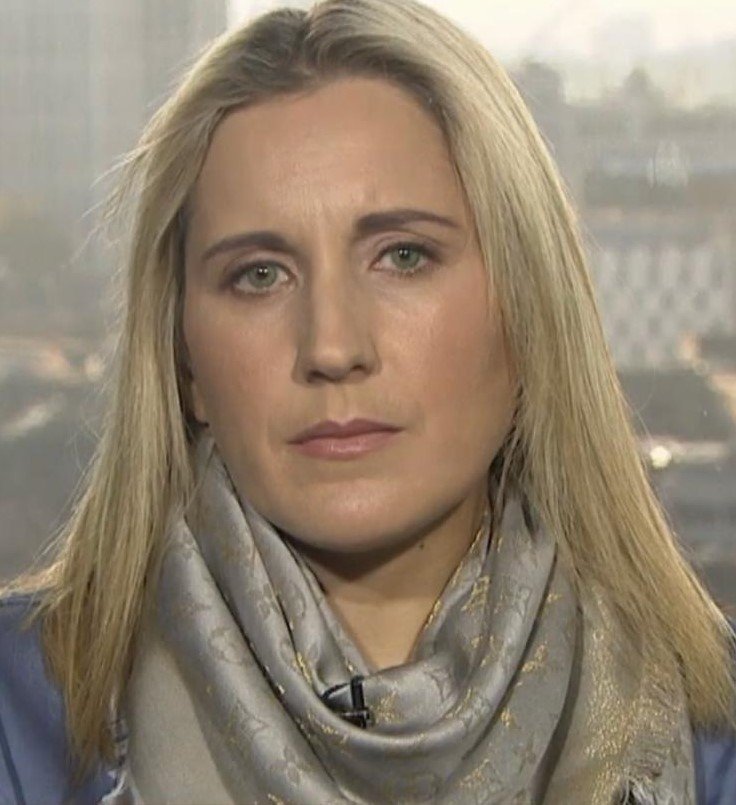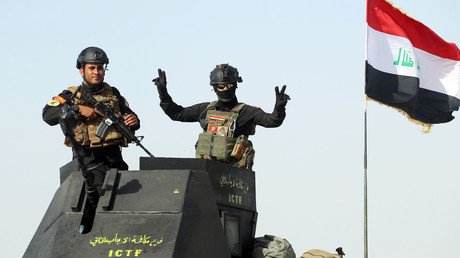'US playing sectarian card in Iraq over fears of Baghdad-Tehran bloc'

There is a fear that Iran and Iraq will become great block in the region and they would act like a kind of buffer to foreign interventionism and the US, says Catherine Shakdam, director of programs, Shafaqna Institute of Middle Eastern Studies in London
The Iraqi military is continuing its attempt to retake the city of Fallujah from ISIS. Islamic State has demonstrated strong resistance on the ground. On Tuesday, government forces along with a Shiite militia group repelled a four-hour Islamic State attack in the city's south. This comes a day after the Iraqi military entered southern parts of the city.
Thousands of civilians still remain trapped and food supplies are reportedly running low. Fallujah is the last major city in Western Iraq which is still held by ISIS. It's located only 65 kilometers west from the country's capital Baghdad.
The US concerns over the gains of Shiite militiamen in the retaking of Fallujah. Washington fears it would increase Iran's international role as the country supports Shiite fighters.
RT: Why is the US concerned by these Shiite militias helping Iraqis to combat ISIS. Is the concern justified considering the greater goal of retaking Islamic State's stronghold?
Catherine Shakdam: I think that the US is trying to politicize Shia Islam here. They are trying to play the sectarian card to somehow insinuate that because Shia militias are advancing in Fallujah and actually doing their job which is supporting the Iraqi army. They are actually part of the Iraqi army; they stand under the banner of the Ministry of Defense. It is not like they are acting separately, under the authority of a government within the government; that is not true. I think they are doing this because there is great fear that Iraq and Iran actually have many interests that align right now. They have had a difficult history but the only difficulty that they encounter was because of Washington when Washington back in the 1980s forced and encouraged Saddam Hussein to wage war against Iran, again, to score some very geopolitical points.
I think there is a great fear that suddenly Iran and Iraq will become this great block in the region and they would act like a kind of buffer to foreign interventionism and the US. US officials are again playing the Shia card saying that it is very dangerous for the region, but not really saying why. I don’t see why Iran has played a very positive role in Syria and in Iraq because they have helped through the military support to push back ISIS militants. I would like to think that all foreign powers are in there for the same thing. So, why suddenly question Iran’s goal when the US have proven already that their own agenda in the region is actually dubious. I think there is a great degree of political hypocrisy. And they are not actually saying why it is so dangerous. Iraq is majority Shia, so why would that be a problem?
RT: Do you agree the success of Shiite militias on the ground could increase Iran's international role?
CS: I don’t think so because it will be reducing Iran to a religious denomination. Iran is much more than that, Iran is a nation state. Iran is more than just a religion. And yes of course, it is going to help in that there is a greater understanding in that they share the same values and traditions. Of course, it makes for good friendships. But it does not mean their agendas will automatically align or that Iran will try to have a client state in Iraq. I don’t think that is the case; I think Iraq needs just good friends in the region, and it is looking to Iran because Iran has offered its support - in the same manner, I would say, that Syria turned to Russia for support and was granted support by Moscow. It doesn’t mean that Syria will become a client state of Russia…
I think that Iran here is generally just trying to help protect its own borders because of course it doesn’t want to see radicalism spread; it’s not good for business, it’s not good for the stability of the region. Iran understands that and there is nothing wrong with helping a friend in need… and Iran is playing within the parameters of international law.
The statements, views and opinions expressed in this column are solely those of the author and do not necessarily represent those of RT.














